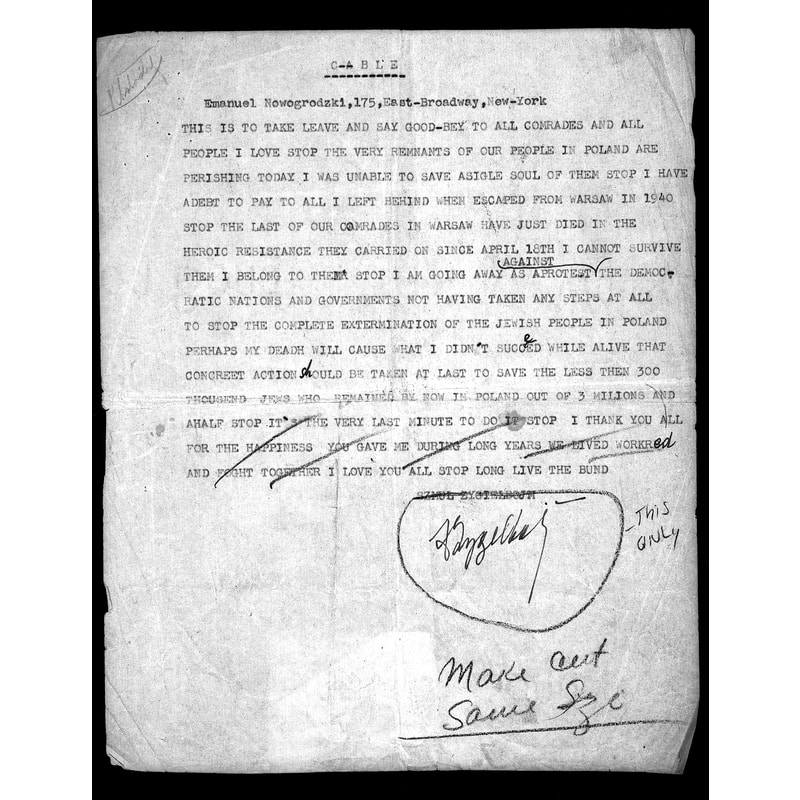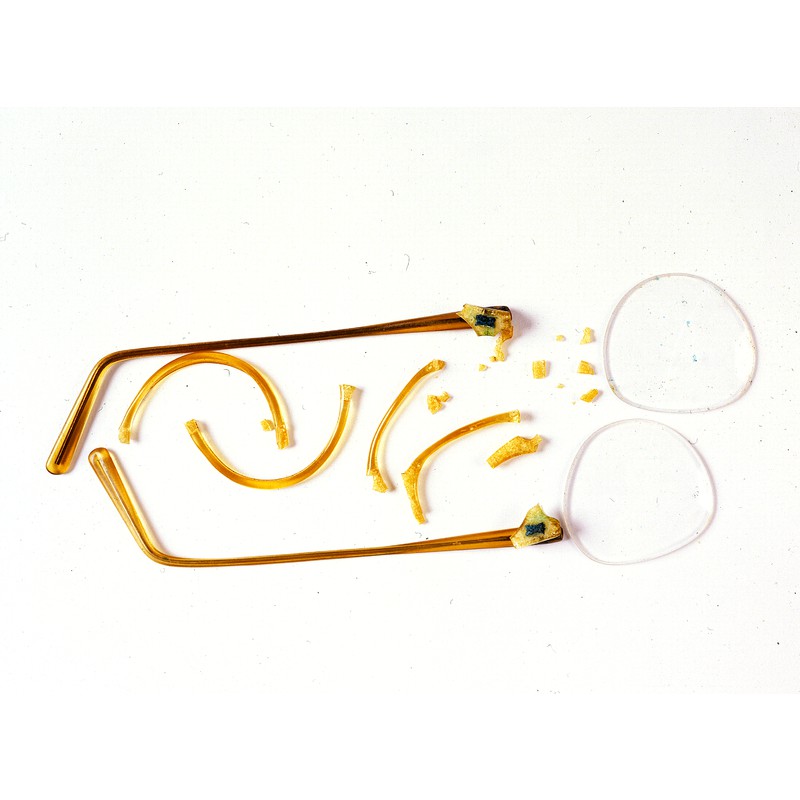Content warning – this post contains themes related to suicide.

“I Was Unable to Save a Single One of Them Stop”
Szmul Zygielbojm was not a Jewish martyr in the usual sense of the term: he was not a zealot besieged by Romans, or a rabbi confronting conversion or the crusader’s sword. Nor was he confronting deportation, as were his family and the thousands of others he had to leave behind in Poland. Yet Zygielbojm’s suicide on May 12, 1943, was far more than a personal act. It was also a desperate public moral gesture, unique in the history of the Holocaust, to call the world’s attention to the accelerating annihilation of the Jewish people of Poland.

Organizing a Response to the Occupation:
Zygielbojm, born in Borowice, a village near Lubin, was a key member of the Bund, one of the most important Jewish socialist labor organizations, and secretary to the Central Council of Jewish Trade Unions. When World War II broke out, Zygielbojm was one of the two Jewish leaders captured by the Germans in Warsaw. But, when Zygielbojm was released he helped establish the Bund’s underground activities to organize a response to the occupation. However, in danger of being arrested again for his clandestine activities, he left his family behind and went to Belgium in December 1939. But, soon after Belgium fell to the Germans and Zygielbojm escaped to France and then New York.
In May 1942, Zygielbojm released a report based on information sent to him from the Bund in Warsaw. It told of the murder of Polish Jews on a massive scale. This news, which became known as the Bund Report, was one of the first sources documenting the genocide of the Jews. It contained a list of cities, towns, and villages where roundups of the Jewish population had occurred.
Alerting the Western Media:
Szmul Zygielbojm dedicated himself completely to alerting the Western media to the gravity of the situation in Poland, and to the need for an immediate plan to rescue the remaining Jews. He campaigned with letters, telegrams, and speeches, including one address broadcast by the BBC on June 2, 1942; it stated in plain language that Jewish Poles were being singled out and killed on an unprecedented, organized, and massive scale.
In September 1942, he disclosed reports of the Polish government-in-exile that seven thousand Jews were being deported daily from Warsaw to their deaths. On March 12, 1943, Zygielbojm sent an urgent message to his Bund colleagues in New York:
ALL OVER POLAND LIQUIDATION PROCEEDING STOP … ALARM THE WORLD STOP APPLY THE POPE FOR OFFICIAL INTERVENTION AND THE ALLIES FOR EXTRAORDINARY STEPS … ONLY YOU CAN RESCUE US STOP THE RESPONSIBILITY TOWARD HISTORY THROWS UPON YOU.
Failure to Save the Community
The responsibility Zygielbojm felt he carried to save a remnant of the Polish Jewish community grew terrible to bear. In early May 1943, news arrived of the failure of the Bermuda conference to aid the Jews under the Nazis, followed by a report of the crushing of the uprising in the Warsaw Ghetto. On May 12, Zygielbojm also received news that his wife, Manya, and his son were among those killed in the Germans’ final liquidation of the ghetto. In despair, Zygielbojm decided to take his own life. In his farewell letter to the Bund, he wrote:
I am going away as a protest against the democratic nations… not having taken any steps at all to stop the complete extermination of the Jewish people in Poland. Perhaps my death will cause what I did not succeed in while alive.
Zygielbojm died at age forty-six, alone in his London apartment. He was surrounded by letters and telegrams designed for public distribution, and also by instructions that his body be cremated.

